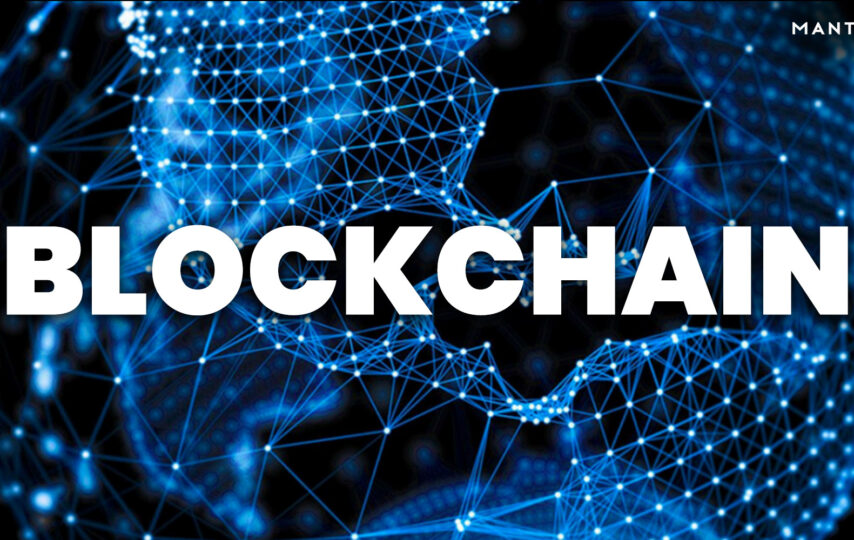Blockchain technology has revolutionized various industries with its decentralized and immutable nature, providing trust and transparency in transactions. However, with its increased adoption, the importance of blockchain security has become paramount. Ensuring the safety and integrity of data stored on the blockchain is crucial to its continued success and mass adoption.
Definition of Blockchain
Blockchain is a distributed ledger technology that operates on a decentralized network of nodes, ensuring transparency and immutability. It consists of blocks of data, where each block is linked to the previous one using cryptographic principles, forming a chain of information.
Importance of Blockchain Security
Blockchain’s secure nature is one of its key features, but it is not invulnerable to threats. As the technology progresses, it becomes crucial to address the security challenges to safeguard sensitive information and protect users from potential risks.
Understanding Blockchain Security
How Blockchain Works
To comprehend blockchain security, it is essential to understand how blockchain technology works. When a transaction occurs, it is added to a block, which is then validated and linked to the previous block through cryptographic hashes. This ensures that altering any data within a block would require changing subsequent blocks, making the process computationally infeasible.
Security Challenges in Blockchain
Blockchain faces various security challenges, such as 51% attacks, distributed denial-of-service attacks (DDoS), and vulnerabilities in smart contracts. Additionally, the public nature of blockchain introduces privacy concerns, requiring innovative solutions to maintain confidentiality.
Best Practices and Tips for Blockchain Security
Blockchain security is of utmost importance in ensuring the integrity and safety of data stored on the blockchain. To help you protect your blockchain network and transactions, here are some best practices and tips:
- Use Robust Cryptography: Employ strong cryptographic algorithms to encrypt data and ensure the confidentiality and integrity of information on the blockchain.
- Implement Multi-Factor Authentication (MFA): Require users to provide multiple forms of identification before accessing their blockchain accounts or performing transactions. MFA adds an extra layer of security against unauthorized access.
- Regularly Update and Patch: Stay updated with the latest security patches and updates for your blockchain software. Regular maintenance helps address vulnerabilities promptly and keeps your system secure.
- Decentralization and Consensus Mechanisms: Embrace decentralization and use consensus mechanisms like Proof-of-Work (PoW) or Proof-of-Stake (PoS) to prevent a single entity from controlling the network, enhancing security.
- Conduct Security Audits: Regularly audit the blockchain network’s code to identify and fix potential security flaws. Third-party security audits can provide an unbiased assessment.
- Secure Smart Contracts: Thoroughly review and test smart contracts for potential vulnerabilities. Implement coding best practices to avoid exploits.
- Use Hardware Wallets: For cryptocurrency storage, opt for hardware wallets over online wallets, as they offer enhanced security against cyber threats.
- Train Users on Security Practices: Educate blockchain users about common security risks, such as phishing attacks and scams, to prevent them from falling victim to malicious activities.
- Monitor Network Activity: Continuously monitor the blockchain network for unusual or suspicious activities. Implement automated alerts to detect potential security breaches.
- Encrypt Data Off-Chain: Consider storing sensitive data off-chain and only store necessary cryptographic proofs on the blockchain to maintain privacy.
- Limit Access Privileges: Restrict access privileges to critical components of the blockchain network. Only authorized personnel should have administrative access.
- Backup Data Regularly: Regularly backup blockchain data to secure storage locations. In the event of a security breach, backups can facilitate data recovery.
- Test Disaster Recovery Plans: Have a well-defined disaster recovery plan in place and test it regularly to ensure the blockchain network can recover from any potential security incidents.
- Stay Compliant with Regulations: Understand and comply with relevant data protection and financial regulations to protect users’ data and maintain legal credibility.
- Engage in Community Collaboration: Engaging with the broader blockchain community can help share insights and best practices for improving security.
By adhering to these best practices and implementing stringent security measures, you can fortify your blockchain network against potential threats and ensure a safer and more reliable ecosystem for all users.
Importance of Regular Updates and Patches
Blockchain networks need to receive regular updates and patches to stay ahead of potential vulnerabilities and exploits.
As blockchain technology advances, so do potential threats. Regular updates help address newly discovered vulnerabilities and protect the network from exploitation.
The Role of Developers in Security
Developers play a crucial role in ensuring blockchain security. Constant monitoring and updating of the blockchain’s codebase are essential to protect it from emerging threats.
- Security Risks in Smart Contracts
Smart contracts are self-executing contracts with predefined conditions. Despite their benefits, they present unique security risks.
- Code Vulnerabilities
Smart contract vulnerabilities can lead to significant losses if not addressed promptly. It is essential to conduct rigorous code audits to identify and rectify potential flaws.
- Mitigating Smart Contract Risks
Implementing coding best practices and conducting third-party audits can significantly reduce the risks associated with smart contracts, ensuring their safety and functionality.
The Future of Blockchain Security
The future of blockchain security holds immense promise as the technology continues to evolve and mature. As blockchain adoption expands across various industries, addressing security concerns becomes even more crucial. Here are some key aspects that will shape the future of blockchain security:
- Advanced Cryptography
Cryptography will remain at the forefront of blockchain security. As computing power increases, so does the need for more robust cryptographic algorithms to safeguard against potential attacks. Innovations in quantum-resistant cryptography will become essential to protect against future quantum computing threats.
- Enhanced Consensus Mechanisms
Consensus mechanisms will evolve to become more efficient and secure. New algorithms will be developed to maintain decentralization while minimizing energy consumption and improving scalability.
- Privacy Solutions
privacy remains a critical concern in blockchain networks, especially for public blockchains. Advanced privacy solutions, such as zero-knowledge proofs and confidential transactions, will be integrated into blockchain protocols to offer enhanced privacy without compromising transparency.
- Interoperability and Standards
The future will see increased efforts towards achieving interoperability between different blockchains and networks. Standardization will facilitate seamless data exchange and communication while ensuring security and preventing data breaches.
- Decentralized Identity (DID)
Decentralized identity solutions will gain traction, enabling users to have more control over their personal data. DID will enhance security by reducing reliance on centralized databases prone to hacking.
- Smart Contract Security
As smart contracts become more prevalent, the focus on their security will intensify. The adoption of formal verification methods and code auditing will minimize the occurrence of vulnerabilities and potential exploits.
- AI and Machine Learning
Artificial intelligence and machine learning will be leveraged to detect anomalies, predict potential security threats, and enhance blockchain security monitoring.
Security Measures for Blockchain Users
As blockchain adoption increases, users must take their security seriously to protect their assets and sensitive information.
- Wallet Security
Users should utilize hardware wallets and employ strong passwords to secure their digital assets effectively.
- Secure Transactions
Verifying the authenticity of transactions and using reputable platforms for blockchain activities reduces the risk of falling victim to scams.
- Avoiding Phishing and Scams
Educating users about phishing attacks and scams helps them recognize and avoid potential threats.
End Note
Blockchain technology has immense potential to transform industries, but its success hinges on robust security measures. By collaborating with top blockchain development companies, implementing best practices, and staying compliant with regulations, the blockchain ecosystem can thrive in an ever-evolving digital world.








